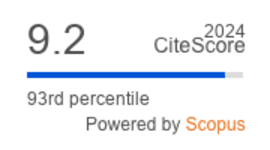Role of Low FODMAP Diet and Probiotics on Gut Microbiome in Irritable Bowel Syndrome (IBS)
DOI:
https://doi.org/10.36877/pmmb.a0000069Abstract
Irritable bowel syndrome (IBS) is a chronic disease prevalent in today’s society and diet remains the most common aggravator of IBS symptoms. Existing literature suggest that IBS patients are dysbiotic as evidence indicates decreased levels of Bifidobacteria, Bacteroidetes and Faecalibacterium prausnitzii and increased levels of Firmicutes in comparison to healthy individuals. Studies suggest that changes in diet can modulate gut microbiota and therefore improve IBS symptoms. The two diets being investigated are the low FODMAP diet and the use of probiotics. A low FODMAP diet implements a reduction in the amount of poorly absorbed carbohydrates and probiotics are live microorganisms that have been proven beneficial when consumed appropriately. Based on the literature acquired from PubMed, a positive correlation appears to exist between the low FODMAP diet and IBS symptoms; 57% report symptom relief. There is also a notable effect on the gut microbiome after changing to low FODMAP diet, noted with a significant decrease in levels of Bifidobacterium, Clostridium, F. prausnitzii and Actinobacteria. This poses a concern as bacteria such as Bifidobacteria and F. prausnitzii are beneficial for health. When probiotics are taken amongst IBS patients a reduction in symptoms is also observed. Additionally, there is an increase in the abundance of Bifidobacterium and Lactobacilli. It is suggested that co-administration of probiotics with a low FODMAP diet may ensure beneficial levels of Bifidobacterium while IBS symptoms ameliorate.Downloads
Published
How to Cite
Issue
Section
License
Copyright (c) 2020 Shabnam Mohajir Selvaraj, Sunny Hei Wong, Hooi-Leng Ser, Learn-Han Lee

This work is licensed under a Creative Commons Attribution-NonCommercial 4.0 International License.
Author(s) shall retain the copyright of their work and grant the Journal/Publisher right for the first publication with the work simultaneously licensed under:
Creative Commons Attribution-NonCommercial 4.0 International (CC BY-NC 4.0). This license allows for the copying, distribution and transmission of the work, provided the correct attribution of the original creator is stated. Adaptation and remixing are also permitted.

This broad license intends to facilitate free access to, as well as the unrestricted reuse of, original works of all types for non-commercial purposes.
The author(s) permits HH Publisher to publish this article that has not been submitted elsewhere.



.png)

.jpg)
